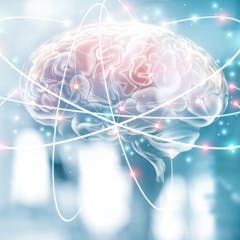
Articles on Medicine
Displaying 1 - 20 of 278 articles

The concept of deep medicine would use AI to free up staff, benefiting patient care.

Having asymptomatic flat feet is not a problem and does not require treatment. It’s important to debunk this common myth.

There is no legal duty to tell a patient they have been prescribed a drug ‘off label’.

In medieval Japan, healing might mean taking medicine, undergoing an exorcism or sidestepping harm in the first place by avoiding inauspicious days.

A drug newly approved by the Therapeutic Goods Administration for endometriosis is available in Australia.

Students are invited to imagine how the social, political and legal landscape for cannabis will look in the future.

Two forms of the same boron nitride molecules couldn’t look and act more different – but combining them could lead to applications that have the best of both worlds.

A new study finds more emergency medicine residencies are available, but hundreds of the positions are going unfilled.

Zosurabalpin is highly effective against dangerous bacterium Crab, which can kill up to 60% of people infected with it.

From helping surgeons to carry out complex procedures to monitoring the heartbeat of the chronically ill, the use of AI in cancer care is set to be game-changing.

Montréal is home to one of the world’s largest brain banks, the Douglas-Bell Canada Brain Bank, where discoveries about different neurological and psychiatric diseases are made.

Can a trip to a museum help cure mental dullness? Here’s what the science has to say.

Long-acting injectable buprenorphine is also known by the brand names Buvidal or Sublocade.

Everybody thinks they know what drugs are, but a clear definition is surprisingly elusive.

Up to 20% of Australians admitted in hospital say they have a penicillin allergy. But not everyone who thinks they’re allergic to penicillin actually is.

Climate change, inequality, the evolution of knowledge… Experts have been surveyed, and a consensus is emerging on what to expect from the effects of these factors in the medical field.

This week medical leaders met in Canberra to explore why women doctors in Australia are vulnerable to sexual harassment – and to draft a set of safety standards to prevent this in future.

Horseshoe crabs play a unique role in medicine, but they’re also ecologically important in their home waters along the Atlantic coast. Can regulators balance the needs of humans and nature?

A marine sponge from Mauritius has shown potential as the source of compounds that kill liver cancer cells.

More people are seeking out traditional forms of medicine, from acupuncture to herbal medicines. The WHO is working to develop standards to make these healing practices implementable on a wide scale.





